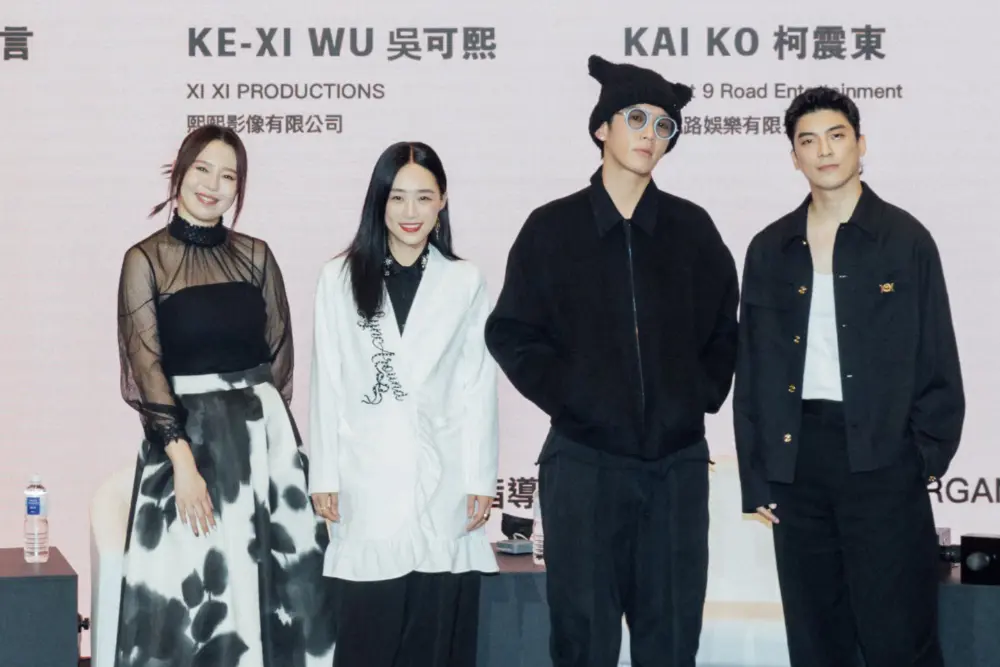Taiwan Creative Content Fest highlights industry trends
As the fifth edition of the Taiwan Creative Content Fest (TCCF) wraps up, its significance as a pivotal platform for the creative sector in Taiwan — and broader Southeast Asia — is clear. The 2024 event emphasized collaboration and cultural representation, shedding light on pivotal trends that solidify Taiwan’s dynamic role in the global entertainment landscape.
The rise of international collaboration
Collaborative Ventures emerged as a cornerstone theme at this year’s TCCF. Industry leaders delved into the logistics and benefits of cross-border partnerships, covering regions from Southeast Asia to far-reaching global destinations.
One standout discussion explored a project by the renowned Chilean production house Fabula, known for “A Fantastic Woman.” They, along with Tana Gilbert, the Venice Critics’ Week Grand Prize winner for “Malqueridas,” are developing the documentary series “Where Is Narumi?” This Chilean-French co-production, deeply rooted in Japan, illustrates the significance of international collaboration. The project seeks funding and creative input from Japan, underscoring the value of multi-national partnerships.
Opportunities in Latin America
Another illuminating session addressed the evolving audiovisual market in Latin America, emphasizing the burgeoning appetite for Asian content. Market studies reveal intriguing statistics: over 60% of young Latin Americans watched at least one K-drama or anime in the past year, with a 35% increase in Asian content consumption over the last two years. For Taiwanese companies, this opens a plethora of possibilities for collaborations with Latin American producers, reflecting a rapidly globalizing entertainment market.
Government Initiatives in the Southeast Asia region further showcased the strategic importance of the creative economy. With several countries enhancing funding sources to promote cross-border co-productions, officials from Thailand, Malaysia, the Philippines, and Taiwan emphasized their commitments to bolstering international creative partnerships.
Tailoring local stories for global audiences
Taiwanese creators are increasingly aware of the necessity to adapt local stories for an international audience. Discussions during the fest highlighted the importance of crafting narratives that resonate on a universal scale while maintaining local authenticity. The head of the Taiwan Creative Content Agency (TAICCA) emphasized the need for improved storytelling techniques. By adopting international storytelling methods, Taiwanese content can reach and captivate a global audience, attracting more co-productions and funding opportunities.
The impact of creative freedom
Creative Freedom was another prominent theme at the TCCF. The Taiwanese film industry enjoys a level of artistic liberty that stands in stark contrast to the more regulated environments in neighboring countries like Malaysia, Singapore, and Thailand. Filmmakers expressed their gratitude for the freedom to explore various genres and themes without intrusive censorship.
The relatively liberal environment in Taiwan allows for unique topics such as BL (Boys’ Love) and Girls Love to flourish — subjects often censored in other regions. This diversity and creative liberty have made Taiwan a hub for Chinese-language content investments, overshadowing more regulated markets like mainland China and Hong Kong.
Hsiao Ya-Chuan, director of “Old Fox,” Taiwan’s submission for the 97th Academy Awards’ international feature category, remarked on the opportunities afforded by Taiwan’s creative freedom. While the domestic market remains limited, the potential to reach international audiences through various global markets is immense. Engaging with regions such as Northeast Asia, Europe, and America could significantly expand Taiwan’s creative footprint.
Taiwanese actors shining globally
The movement towards coproductions and international collaborations has also propelled Taiwanese actors into the global spotlight. At an engaging TCCF panel, local star J.C. Lin discussed his experiences on a Taiwan-French co-production. He highlighted cultural contrasts, such as communication styles, revealing the rich cultural exchanges inherent in international projects.
Meanwhile, Wu Ke-Xi shared her delight at having clauses in her contract for the U.S. production “Blue Sun Palace” that allowed her to reassess intimate scenes until the day of release. This flexibility highlights the nuanced negotiations involved in international productions.
Among the prominent names, Lee Kang-sheng stands out. Recognized for his roles in films directed by Taiwan-based Malaysian auteur Tsai Ming-liang, Lee has recently appeared in the Chinese-language U.S. film “Blue Sun Palace” and the Taiwan-French-Singaporean co-production “Stranger Eyes.” This film notably debuted in Venice’s competition and opened Taiwan’s prestigious Golden Horse Film Festival. Looking ahead, Lee will feature in “Black Ox,” a coproduction led by the Chinese director Qiu Jiongjiong.
The TCCF has not only reaffirmed its role as a critical platform for the Taiwanese creative industry but also highlighted the nation’s integration into the global entertainment fabric. By celebrating international collaborations, creative freedom, and the global success of Taiwanese talents, the festival underscores Taiwan’s growing influence and dynamism in the cultural sector.
Share your thoughts on this exciting evolution in Taiwan’s creative industry, and stay connected for more updates on groundbreaking stories from around the world.

 Italian
Italian







